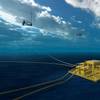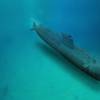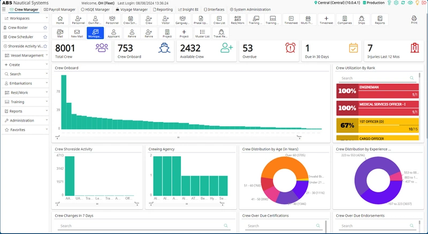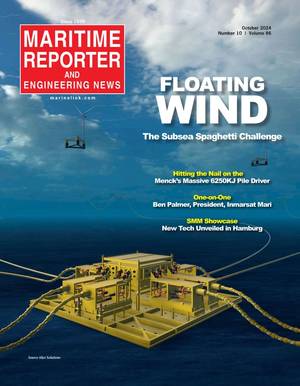The House Committee on Transportation and Infrastructure passed the Deepwater Integrated Program Reform Act, H.R. 2722, authored by Congressman Elijah E. Cummings (D-MD), Chairman of the Subcommittee on Coast Guard and Maritime Transportation. The Committee also passed the Coast Guard Authorization Act of 2007, H.R. 2830, authored by the Chairman of the full Transportation Committee, James Oberstar (D-MN) and by Congressman Cummings. Both bills passed on voice votes.
Congressman Cummings released the following statement:
“As Chairman of the Subcommittee on Coast Guard and Maritime Transportation, I am determined to be the number one supporter of the Coast Guard – but also to ensure that the Coast Guard meets the highest technical and professional standards and that the service has the tools it needs to keep our nation secure and to provide aid to those in distress at sea. I am also determined to require strict accountability of the service for its stewardship of taxpayer resources.
“Obviously, the Coast Guard’s management of its $24 billion Deepwater acquisition program has not met these standards and expectations. The Deepwater program has had unacceptable failures – including the failure of the effort to lengthen 110-foot patrol boats to 123 feet, the failure of the first design of the new Fast Response Cutter, the failure to date of the effort to develop the vertical unmanned aerial vehicle, and now problems with the hull fatigue life on the National Security Cutter.
“These program failures have occurred in large measure because the Coast Guard has not had in place the systems that would enable it to effectively manage this procurement and has instead relied on private sector contractors engaged under flawed contracts.
“Admiral Allen has made significant progress in putting the Deepwater program on a new course that will meet the expectations of the American taxpayers. I applaud his progress and note that H.R. 2722 is intended to build on his efforts by creating within the Coast Guard the systems and personnel it needs to effectively manage all acquisitions efforts.
“Specifically, H.R. 2722 would eliminate the use of private sector firms as the lead systems integrator. An amendment adopted during consideration of the bill in the Coast Guard Subcommittee requires that the private sector lead systems integrator function be brought back in house by 2011 – but allows the Coast Guard to bring the function back in house prior to that date if the service certifies that it has the personnel and systems to enable it to effectively manage the function.
“We want to give the Coast Guard all of the time that it needs – and that the Department of Homeland Security Inspector General has recommended – to begin to take over the lead systems integrator function – but we also want to see the service move deliberately to begin managing its own procurements.
“H.R. 2722 would also require the use of full and open competition to help control costs on the program and ensure that the Coast Guard receives the best value for the expenditure of taxpayers’ resources. Further, it puts the Coast Guard firmly in charge of all technical decisions so that its interests are always paramount in all contractual matters.
“Significantly, the bill also requires the appointment of a civilian as Chief Acquisitions Officer. Unlike the agencies of the Department of Defense, the Coast Guard does not have the ability to cultivate among its uniformed personnel a career’s worth of acquisitions experience. I believe that the appointment of a senior level civilian to oversee acquisitions in the Coast Guard will bring the kind of expertise to that position that is needed not only to ensure effective management of Deepwater but to oversee the new acquisitions directorate being created by Admiral Allen.
“I am confident that H.R. 2722 would put in place the reforms that are needed to make the American people proud of the Deepwater program and confident in the assets produced under it. I look forward to working with my colleagues as this legislation moves to the floor of the House.
“Today, the Committee on Transportation and Infrastructure also adopted the Coast Guard Authorization Act of 2007, H.R. 2830, which authorizes $8.3 billion in funding for the Coast Guard, including more then $1 billion directed toward capital acquisitions.
“The bill also makes long overdue improvements in fishing safety and introduces new training requirements, and creates new grant programs to support the safety improvements.
“Further, the bill seeks to combat the transportation of invasive species through the ballast water carried in ships. Specifically, the bill requires that ships install ballast water treatment systems by 2013 and sets as a national goal the elimination of live organisms from ballast water by 2015. The bill also requires the Coast Guard to raise the national ballast water treatment standard as technologies for treating ballast water continue to improve.
“Finally, the bill addresses the strain that the guarding of liquefied natural gas (LNG) terminals is placing on the Coast Guard. The Committee adopted today an amendment I offered to require that before facility security plans for new LNG terminals are approved, the Coast Guard must certify that it has adequate resources in the sector where the terminal is to be located to guard that terminal.
“Simply put, I do not believe that the construction of new LNG terminals should be approved if the Coast Guard does not have the resources it needs to provide security for these terminals.
“I thank Chairman Oberstar, the Chairman of the full Committee on Transportation and Infrastructure, for his leadership, support and dedication to excellence. I also thank the Ranking Member of the full Committee, Congressman John Mica (R-FL) – as well as the Ranking Member of the Coast Guard Subcommittee, Congressman Steven LaTourette (R-OH) – for their work on H.R. 2722 and H.R. 2830.
“The Coast Guard is truly our thin blue line at sea. H.R. 2722 and H.R. 2830 are vitally needed bills that will help ensure that the Coast Guard is truly prepared and equipped to keep our nation secure and to perform its other critical missions.
“I look forward to working closely with all of my colleagues to move these bills through the Congress so that we can effect needed reforms in the Deepwater program and reauthorize our nation’s Coast Guard.”
Featured videos
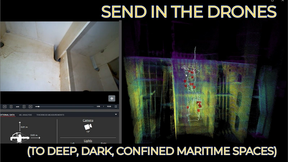
Send in the Drones (to deep, dark, confined maritime spaces)

Taking the First Step Toward Autonomy
Subscribe for
Maritime Reporter E-News
Maritime Reporter E-News is the maritime industry's largest circulation and most authoritative ENews Service, delivered to your Email five times per week





